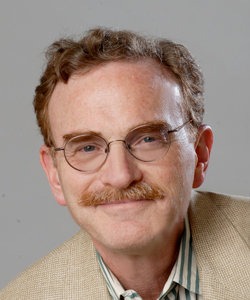 NCSE is delighted to congratulate Randy W. Schekman for receiving the 2013 Nobel Prize for Physiology or Medicine. Along with James E. Rothman and Thomas C. Südhof, Schekman was honored for his work on "the mystery of how the cell organizes its transport system." According to a press release issued by the Nobel Assembly on October 10, 2013:
NCSE is delighted to congratulate Randy W. Schekman for receiving the 2013 Nobel Prize for Physiology or Medicine. Along with James E. Rothman and Thomas C. Südhof, Schekman was honored for his work on "the mystery of how the cell organizes its transport system." According to a press release issued by the Nobel Assembly on October 10, 2013:
Randy Schekman was fascinated by how the cell organizes its transport system and in the 1970s decided to study its genetic basis by using yeast as a model system. In a genetic screen, he identified yeast cells with defective transport machinery, giving rise to a situation resembling a poorly planned public transport system. Vesicles piled up in certain parts of the cell. He found that the cause of this congestion was genetic and went on to identify the mutated genes. Schekman identified three classes of genes that control different facets of the cell's transport system, thereby providing new insights into the tightly regulated machinery that mediates vesicle transport in the cell.
A member of NCSE, Schekman is Professor in the Department of Molecular and Cell Biology at the University of California, Berkeley, and a Howard Hughes Medical Institute Investigator. He was elected to the National Academy of Sciences in 1992 and as president of the American Society for Cell Biology in 1999.
